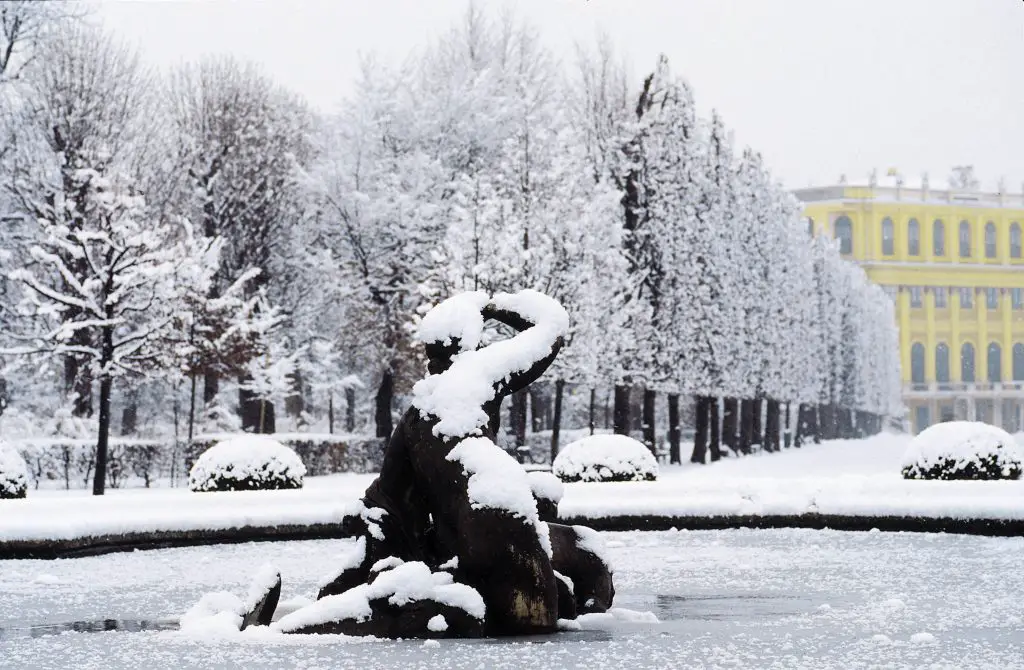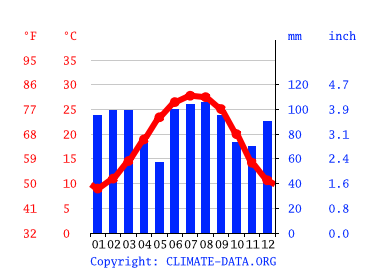

Summer is also by far the sunniest of all seasons.


Vienna's weather changes regularly, but summer is undoubtedly the most comfortable time of year to visit. Generally speaking, you may expect 13 or 14 days with rainfall per month in summert must be said, however, that rain showers do tend to be rather short, although spells of rain that last a couple days may occur as well. July and August lie somewhere in between those numbers. Monthly rainfall totals in summer range from 45mm in September to 74mm in June, which is the city's wettest month. Precipitation is generally moderate throughout the year and doesn't vary significantly, but summers are slightly wetter than the other three seasons. So, don't overlook the possibility of rain during Vienna's summer. These temperatures are absolutely ideal for strolling around the historic heart of the city, which, by the way, is a UNESCO World Heritage Site. Vienna is recognised as one of the safest capital cities in the world and is renowned for a great holiday experience. The recommended times to travel are late spring, the beginning of summer or autumn when temperatures are most likely to be mild and at their most pleasant.Įven though most people think of the summer climate in Vienna as being pleasurably mild and quite sunny, there are days when it can, in fact, feel exceedingly hot. Visitors wishing to see the city during the period from June to September will, however, find the climate at its most comfortable.Įach July and August, for example, Vienna will typically experience weather with average high temperatures of 24☌ in the afternoons and lows of no less than 14☌ during the nights. Temperatures can on occasion exceed 30☌ and although it usually lasts a week or two, this fine weather can be short-lived. The overall average temperature in summer ranges between 15☌ in September to 19☌ in the peak summer months of July and August. Of course, anyone who wants to attend a classical music concert, an opera or a fancy ball couldn't pick a better place to do that than Vienna. The former home of people such as Mozart, Beethoven, Schubert, Strauss and Freud, Vienna is sometimes referred to as the "City of Music" or the "City of Dreams." It used to be the bastion of the wealthy and powerful Habsburg Dynasty and, as a reminder of this period of sheer splendour and prosperity, the city is still home to several imperial palaces.Īdditional attractions in Vienna include the fantastic Museum Quarter and its world-renowned café and coffee culture. The city is set on the banks of the mighty Danube River, which continues its trajectory through the heart of two other European capitals, Bratislava and Budapest.Īn iconic city with a wealth of history, Vienna is one of Europe's major cultural and artistic capitals. Higher than average temperatures or even large drops in temperature can take place at any time of year. Vienna is subject to both a warm, dry climate and also a raw Alpine climate so the temperature and weather conditions tend toward extremes. On average, 2,000 hours of sunshine are registered annually, and because of the city's continental location away from any large bodies of water, it can actually get quite hot at times during the summer. Austria's capital has warm and pleasant summers and winters with cold temperatures that can drop below freezing. We love the Weather+ app – it gives an accurate 6 day forecast for day and night, which when you're planning from home is really helpful.Vienna is known for its placid continental climate one with variable weather patterns and a large seasonal temperature variance.Dressing in layers will help you with the temperature changes during the day, whatever time of year you visit.Make sure too that they have large spaces between the tracks, or the snow will get stuck in them and make them very slippery. It's important that you get soft rubber soles because even medium soles get really hard in the freezing cold. To keep your feet warm and dry in winter pack really good boots with soft rubber soles.It keeps you warm in the cold, wicks away moisture when it's hot, and doesn't retain odours – even after prolonged wear.
#WEATHER IN VIENNA IN DECEMBER SKIN#
light wool is a good choice to wear against your skin as it naturally helps to regulate your body temperature.For the winter months December, January, February and March you will need warm layers, a thick waterproof coat, warm hat, gloves and a warm scarf.The winters are absolutely freezing and you will see lots of the locals wearing fur coats and hats.A light raincoat is useful even in the summer months, as is a travel umbrella.Even in summer the evenings can be cool, so pack a lightweight jacket or sweater.In the summer months (June, July and August) it is hot, but women do not wear shorts in the city, even teenage girls.


 0 kommentar(er)
0 kommentar(er)
